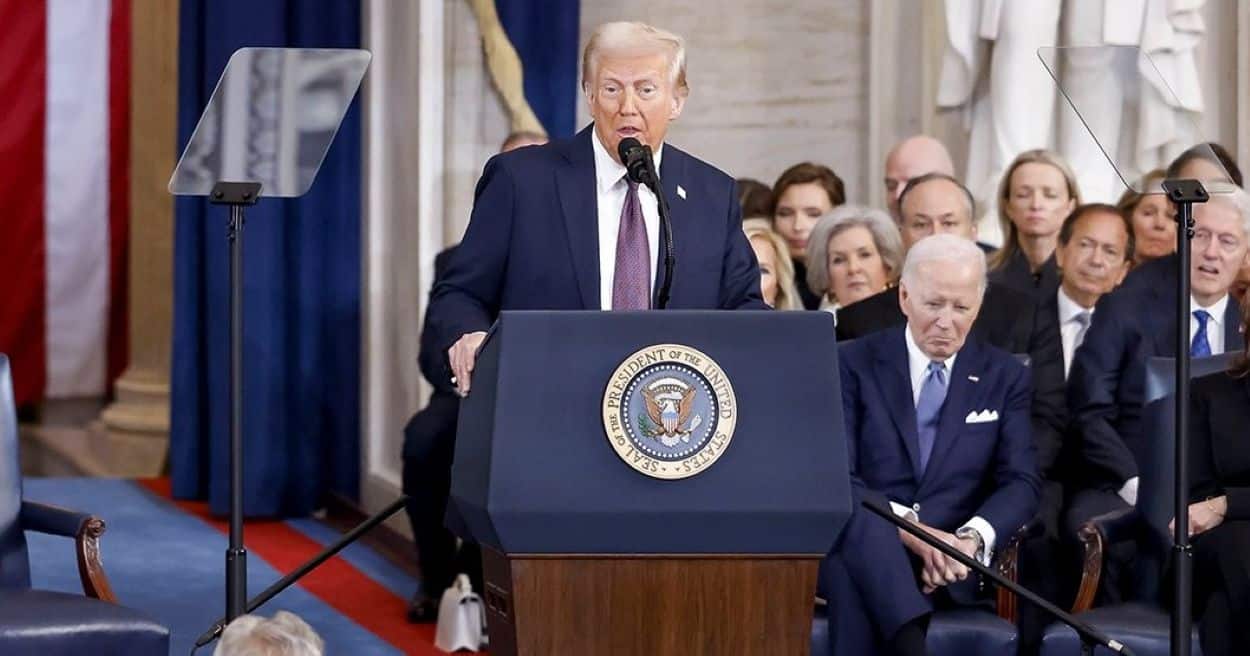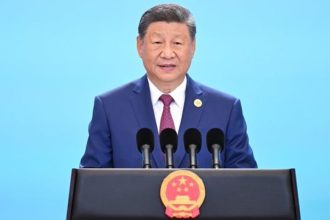In a major legal setback for former President Donald Trump, a federal judge blocked his executive order restricting birthright citizenship in the United States on Wednesday. The ruling scuttles Trump’s efforts to overturn a constitutional right firmly established for over a century.
The decision indefinitely halts the enforcement of one of Trump’s most contentious executive orders, scheduled to take effect nationwide on February 19. U.S. District Judge Deborah Boardman, presiding in Maryland, emphasized the importance of protecting this fundamental right, stating, “The denial of the precious right to citizenship will cause irreparable harm.”
Judge Boardman underscored that Supreme Court precedent explicitly safeguards birthright citizenship. She further noted that Trump’s executive order “conflicts with the plain language of the 14th Amendment,” as reported by The Washington Post. “No court in the country has ever endorsed the president’s interpretation,” she declared. “This court will not be the first.”
This injunction follows a 14-day stay on enforcing Trump’s executive order, issued in January by a federal judge in Washington state. In that case, U.S. District Judge John Coughenour condemned the order as “blatantly unconstitutional.” Despite the ruling, Trump promptly announced his intention to appeal.
Birthright Citizenship and the 14th Amendment
Birthright citizenship is a cornerstone of the U.S. Constitution, enshrined in the 14th Amendment. The amendment, ratified in 1868 during the nation’s recovery from the Civil War, guarantees citizenship to anyone born on U.S. soil. Trump’s executive order sought to reinterpret this provision by arguing that individuals in the U.S. illegally or on visas were not “subject to the jurisdiction” of the country and, therefore, excluded from birthright citizenship.
Critics of the order have pointed to longstanding legal precedent, including an 1898 U.S. Supreme Court ruling in United States v. Wong Kim Ark. In that case, the Court affirmed that children born in the U.S., including those born to immigrant parents, are entitled to citizenship. Wong Kim Ark, a Chinese-American man, had been denied reentry to the U.S. because he was not a citizen. The Supreme Court’s decision in his favour solidified the interpretation of the 14th Amendment as protecting birthright citizenship.
Read: Federal Judge Blocks Trump’s Executive Order on Birthright Citizenship
The federal court’s decision reinforces the enduring strength of the 14th Amendment and its role in safeguarding the rights of individuals born in the United States. Legal experts and advocates have hailed the ruling as a victory for constitutional principles and rejecting attempts to undermine established law.
As the legal battle continues, the ruling serves as a reminder of the judiciary’s role in upholding the Constitution and protecting fundamental rights. For now, birthright citizenship remains a cornerstone of American democracy, firmly rooted in over a century of legal precedent.






